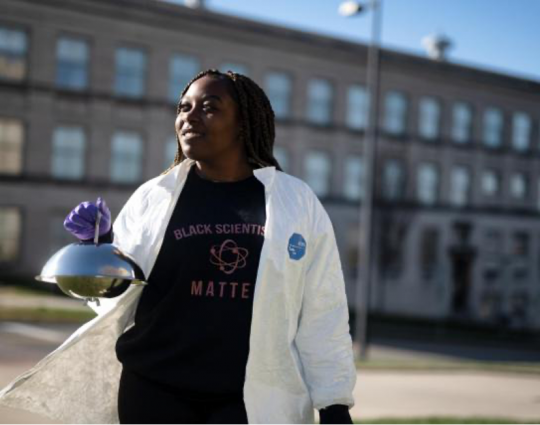
Future Leaders in CEE: Emission Characterization and Criteria for Remediation of Polychlorinated Biphenyls in Lower-Income Public Schools
Join the MIT Civil and Environmental Department for its Future Leaders in CEE: Supporting research, career development, diversity, equity and inclusion seminar series that brings together speakers from diverse backgrounds who are considered future leaders in STEM and civil and environmental engineering to share their journey to achieve success. This month's speaker is PhD candidate in Civil and Environmental Engineering at the University of Iowa, Moala Keshei Bannavti Seminar topic: Emission Characterization and Criteria for Remediation of Polychlorinated Biphenyls in Lower-Income Public Schools In a school, airborne polychlorinated biphenyl (PCBs) exposure may come from multiple sources. We hypothesized that there are both Aroclor (historic) and non-Aroclor (modern) sources within a single school and that PCB concentration and congener profiles differ among rooms within a single building. To evaluate this hypothesis and to identify potential localized sources, we measured airborne PCBs in nine schoolrooms. School room concentrations and congener profiles statistically varied from one room to another. Rooms in the oldest wing of the building, constructed between 1920 and 1970, had the highest PCB concentrations. The congener distributions indicate historic use of Aroclor 1254 as well as modern sources of non-Aroclor congeners associated with paint pigments and surface coatings. Our findings suggest this noninvasive source identification method presents an opportunity for targeted source testing for more cost-effective prioritization of materials remediation in schools, making PCB remediation more accessible for disadvantaged school districts. About the Presenter: Moala is a PhD candidate in Civil and Environmental Engineering at the University of Iowa, studying room-to-room variation and remediation of polychlorinated biphenyls in minority-predominant, low-income public schools. As a first generation Cameroonian immigrant raised in urban NJ, Moala identifies first-hand with the issues in minority predominant low-income school districts and is determined to bridge the gap in environmental justice experienced by those of low socioeconomic status. Please email Stephanie at smartino@mit.edu if you would like to attend.

